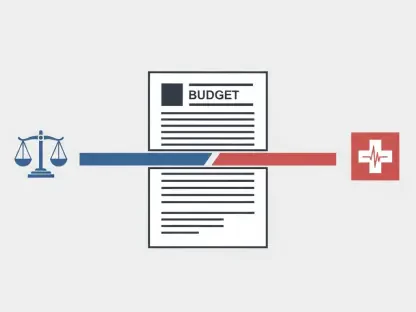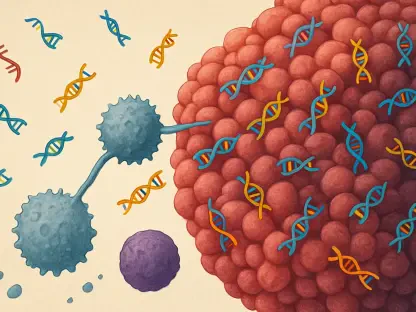Gilead Sciences recently announced its decision to withdraw Trodelvy from the market as a treatment for bladder cancer, following disappointing results from its confirmatory TROPiCS-04 clinical trial. This marks a notable shift for a drug that initially showed promise in shrinking tumors and secured accelerated approval from the U.S. Food and Drug Administration (FDA). The withdrawal underscores the unpredictable landscape of drug development and raises important questions about the future of Trodelvy in other cancer treatments. While this decision represents a regulatory and clinical setback, it offers an opportunity to examine broader industry trends and Gilead’s strategies in the competitive oncology market.
The Rise and Fall of Trodelvy in Bladder Cancer
Trodelvy garnered significant attention and received accelerated FDA approval in 2021 after demonstrating potential in reducing tumor size in advanced bladder cancer patients. These patients had already undergone standard treatments, including chemotherapy and options like Merck & Co.’s Keytruda. The conditional approval aimed to provide quicker access to new treatments while more comprehensive data were gathered. However, the stringent nature of accelerated approval meant Trodelvy’s continued market presence hinged on confirmation of its benefits in further trials—an expectation it ultimately failed to meet.
Despite initial optimism, the Phase 3 TROPiCS-04 trial failed to meet its primary endpoint, a crucial factor in determining the drug’s effectiveness. The study aimed to show a significant extension in overall survival for advanced bladder cancer patients but did not deliver the expected results. Consequently, Gilead and the FDA agreed that withdrawing Trodelvy was the most appropriate course of action. This decision reflects the FDA’s rigorous oversight in verifying the long-term efficacy and safety of conditionally approved drugs. The outcome underscores the ongoing challenges pharmaceutical companies face in bringing new cancer treatments to market and maintaining their approval status.
A Broader Context of Regulatory Scrutiny and Industry Trends
Trodelvy’s market withdrawal for bladder cancer is not an isolated incident but part of a broader pattern affecting the pharmaceutical industry. Recently, several oncology drugs have faced similar scrutiny, particularly those in the “PD-1” class. High-profile drugs like Keytruda and Bristol Myers Squibb’s Opdivo have also been subjected to stringent post-approval evaluations. This regulatory approach emphasizes a balance between expedited access to potentially life-saving treatments and the need to ensure these treatments deliver on their initial promise, enhancing both efficacy and safety.
The FDA’s increasing vigilance highlights its commitment to public health, even if it means rescinding earlier approvals that once offered hope. For Gilead, this withdrawal represents a significant but not insurmountable obstacle, given its diversified oncology portfolio. The dynamic highlights the complexities and regulatory challenges inherent in the accelerated approval pathway. Ensuring the effectiveness of new treatments often requires balancing rapid market access with rigorous long-term evaluations, a process that can lead to unpredictable outcomes for pharmaceutical companies and patients alike.
Implications for Gilead’s Overall Oncology Strategy
While Trodelvy’s failure in bladder cancer impacts Gilead, the drug remains a cornerstone of the company’s broader oncology strategy, particularly in treating breast cancer. Trodelvy is an antibody-drug conjugate engineered to target proteins prevalent on tumor cells, releasing toxic chemicals designed to destroy cancerous tissues while sparing healthy cells. This mechanism has demonstrated robust efficacy in treating breast cancer, leading to strong sales projections and cementing its role within Gilead’s oncology portfolio.
According to TD Securities analyst Tyler Van Buren, Trodelvy’s sales could potentially reach $1 billion by 2030, driven predominantly by its application in breast cancer treatments. This success in one of the most challenging cancer types underscores the drug’s potential and provides Gilead with a substantial buffer against setbacks experienced in other areas, such as bladder cancer. It also illustrates the strategic importance of developing versatile oncology treatments capable of addressing multiple cancer types, enhancing the company’s resilience amid an unpredictable market.
Navigating Competitive and Challenging Markets
Gilead’s journey with Trodelvy also highlights the intensely competitive nature of the oncology drug market. Although the company has encountered significant setbacks in bladder and lung cancer treatments, rival drugs such as AstraZeneca and Daiichi Sankyo’s datopotamab deruxtecan have made substantial strides forward. This competitor has already sought FDA approval for lung cancer treatment, illustrating the fierce competition Gilead faces in these therapeutic areas. The competitive landscape compels Gilead to continually innovate and improve its offerings to maintain its market position.
Staying competitive for Gilead means not only refining its existing drugs but also exploring innovative combination therapies. Currently, Gilead is conducting advanced-stage trials combining Trodelvy with Keytruda to treat advanced breast and lung cancers. These efforts aim to extend the application of Trodelvy and solidify Gilead’s presence within the oncology sector. This strategy reflects the company’s commitment to leveraging its existing strengths while navigating the complexities and challenges posed by an ever-evolving pharmaceutical landscape.
Future Prospects and Ongoing Trials
Gilead Sciences has announced its decision to pull Trodelvy from the market as a treatment for bladder cancer. This decision comes after the disappointing outcomes in its TROPiCS-04 clinical trial, which aimed to confirm earlier success. Trodelvy initially garnered attention and hope for its ability to shrink tumors and earned an accelerated approval from the U.S. Food and Drug Administration (FDA). This withdrawal highlights the unpredictable nature of drug development and raises questions about the potential of Trodelvy in treating other types of cancer.
While this move signals a setback both regulatory and clinically, it also provides a moment to reflect on the broader trends within the pharmaceutical industry. Gilead now faces the challenge of navigating the competitive oncology market, and this development may influence its strategic direction. As the company reassesses its approach, stakeholders will be keenly watching how Gilead adapts and what new opportunities or hurdles may arise in their quest to bring effective cancer treatments to patients.









